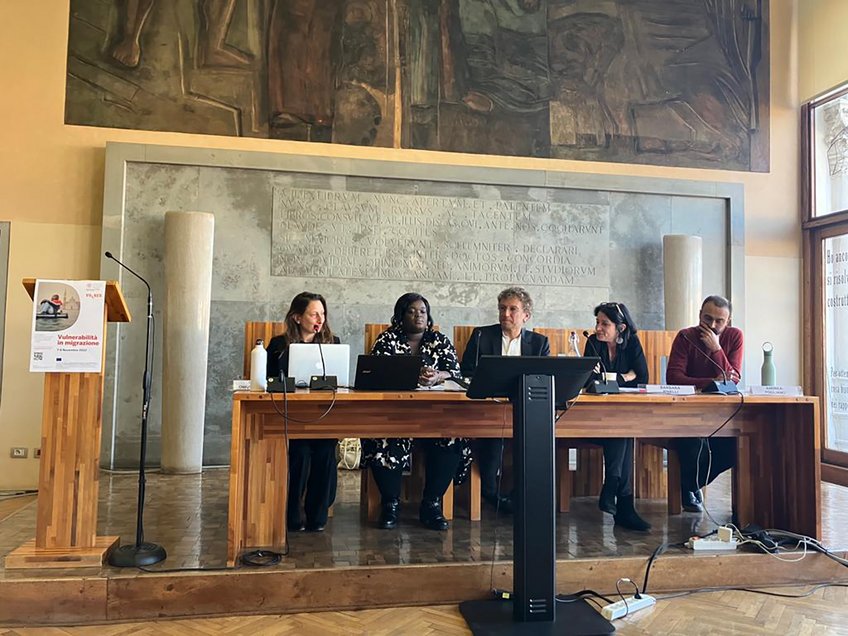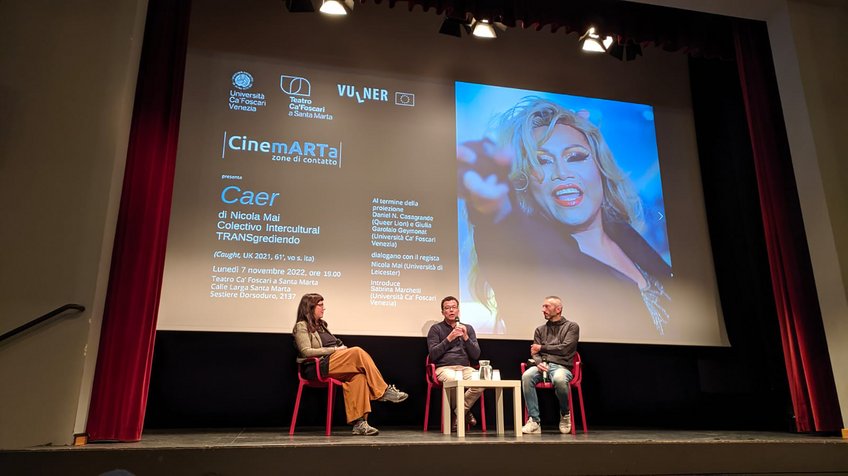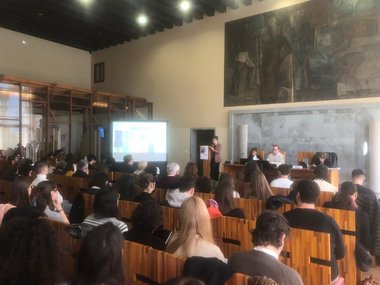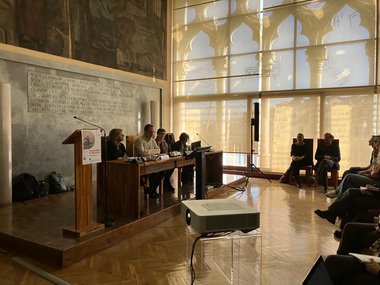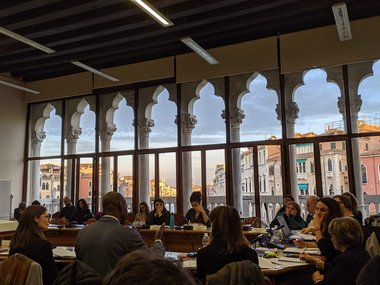Vulnerabilità in migrazione
On November 7 and 8, 2022, Giulia Garofalo Geymonat and Sabrina Marchetti, members of the VULNER Italian team organised the event ‘Vulnerabilità in migrazione’ (Vulnerability on the move) at Ca’ Foscari University of Venice.
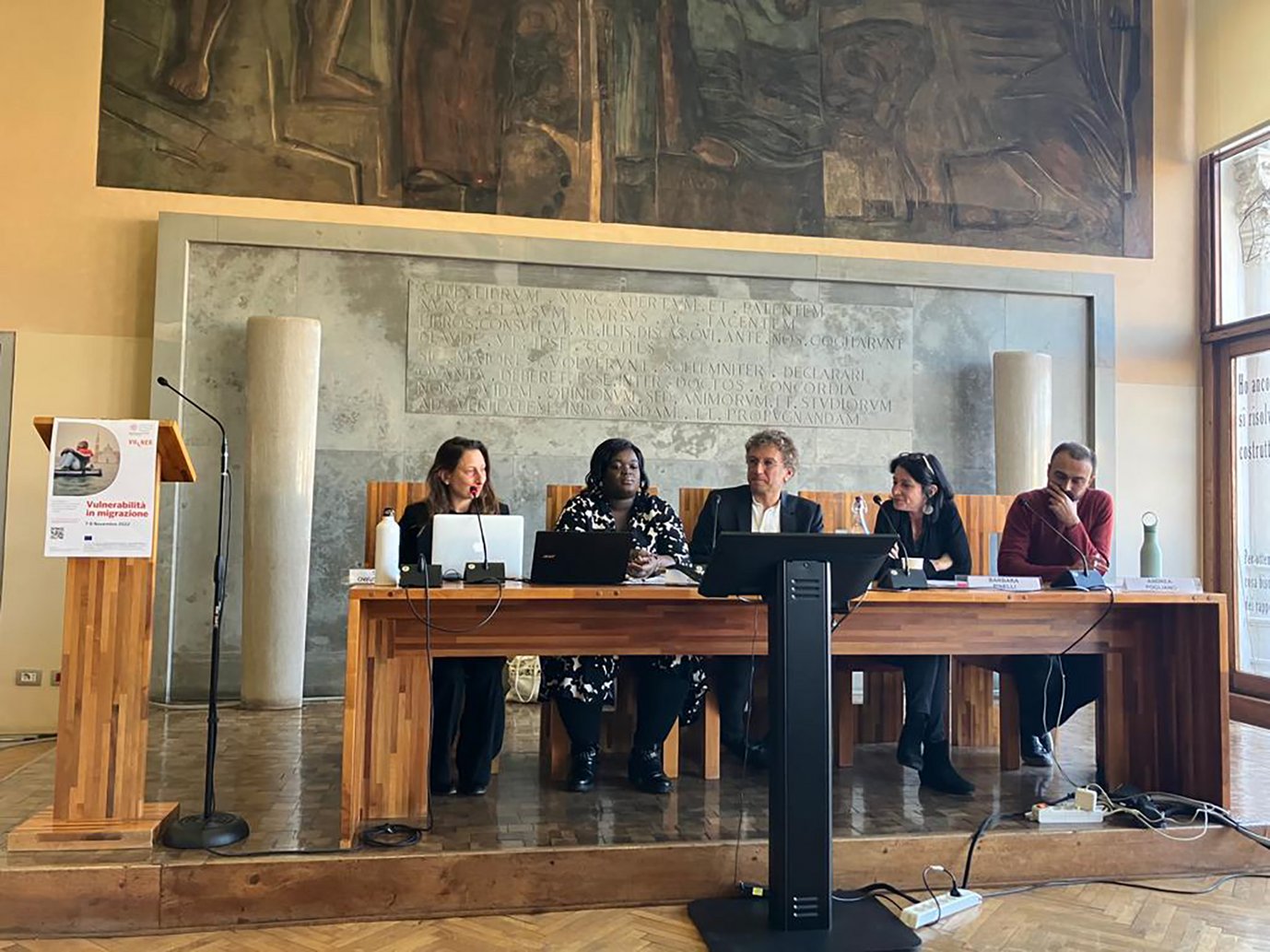
By Giulia Garofalo Geymonat, VULNER Italian Team
On November 7 and 8, 2022, Giulia Garofalo Geymonat and Sabrina Marchetti, members of the VULNER Italian team organised the event ‘Vulnerabilità in migrazione’ (Vulnerability on the move) at Ca’ Foscari University of Venice. The aim of the two-day event was to address the issues of vulnerability and migration in Italy from different and interdisciplinary perspectives: from philosophy, anthropology, law, cultural studies, through activist, literary and film practice. ‘Vulnerabilità in migrazione’ was held in Italian and it was open to the public. It enjoyed a large attendance of a mixed audience of about 200 people, including stakeholders, academics, representatives from NGOs, activists, and students.
‘Vulnerabilità in migrazione’ started in the afternoon on November 7, with an introduction held by Sabrina Marchetti, leader of the VULNER Italian team, and Sara De Vido, the Rector’s Delegate for Gender Equality at Ca’ Foscari. Both speakers stressed the importance of addressing issues of vulnerability in migration research with complex and intersectional lenses, while remaining critical of the restrictive use that can be made of the category of vulnerability in contemporary migration and asylum policies.
The first session was organized by Gaia Giuliani, from CES-University Coimbra, with Francesco Vacchiano from Ca' Foscari as a chair, and focused on media, migration and vulnerability in contemporary Italy. The session included the participation of Susanna Owusu Twumwah (migration and diaspora practitioner), Barbara Pinelli (University RomaTre), and Andrea Pogliano (University of Piemonte Orientale). Cutting across academic and activist analyses, the speakers contributed to critical reflections on racism in Italian media, especially with regards to representations of racial stereotypes of migrants and people more generally, as well as on existing practices of resistance through ethical alternative media.
'Vulnerabilità in migrazione’ continued in the evening on November 7 with the screening at Teatro Ca’ Foscari of CAER/CAUGHT (2021), a movie by Nicola Mai and Colectivo Intercultural Transgrediendo. The screening was organised in collaboration with CinemARTa Zone di contatto. It was followed by a conversation with Nicola Mai, the movie director and Professor of Criminology at University of Leicester; Daniel N. Casagrande from Queer Lion Award, and Giulia Garofalo Geymonat, senior researcher of the VULNER Italian team. The movie uses a collaborative ethnographic fiction to tell the stories of Latina transgender women who work in the sex industry in New York, and in particular their struggles with transphobia, racism, restrictive migration policies and the criminalisation of prostitution. Interestingly, the movie represents the power of a collective organisation put in place by a community of migrants that experience multidimensional vulnerability, as well as the ways in which they struggle to access forms of protection offered as part of anti-trafficking measures.
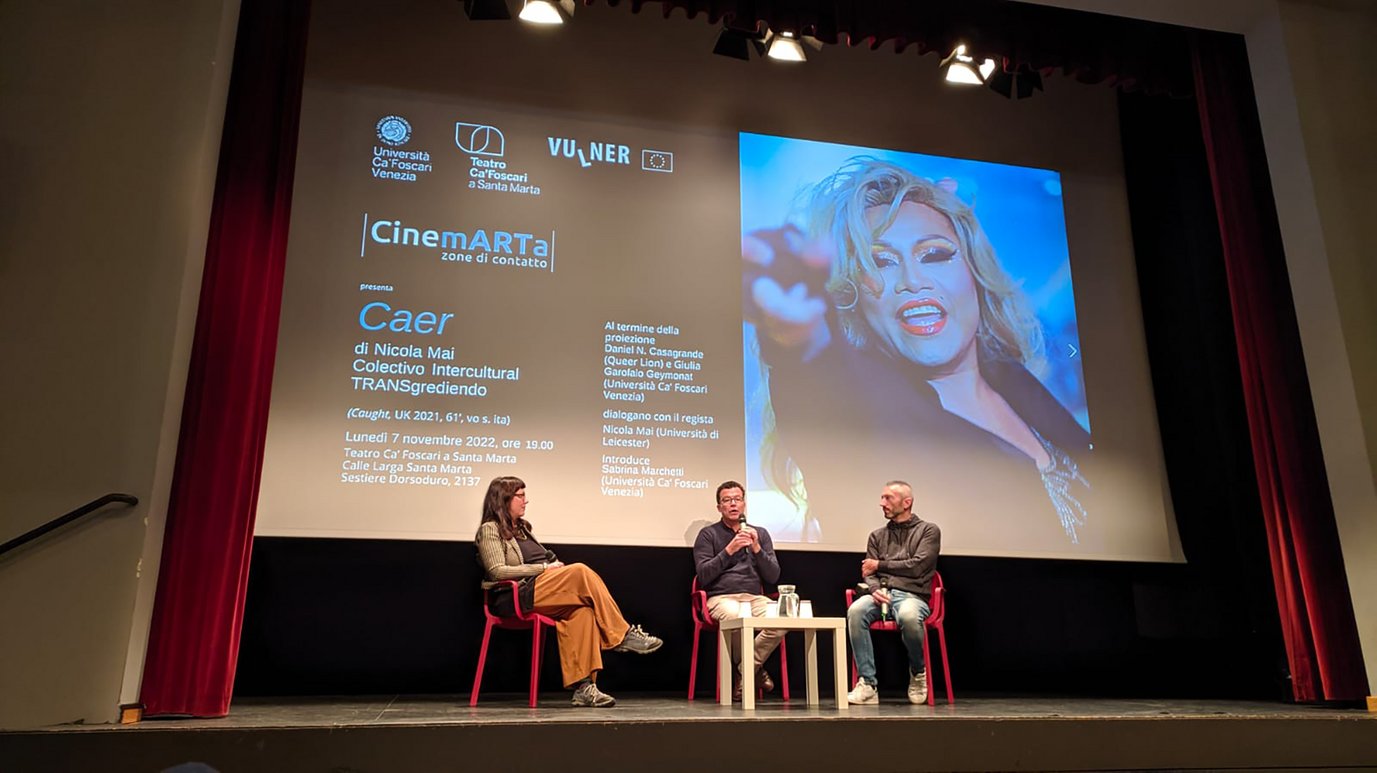
On November 8, the first seminar, chaired by Luiz Beneduzi (Ca’ Foscari) saw the interventions of three keynote speakers from different disciplinary fields. First, the feminist political philosopher Brunella Casalini (University of Florence) took the floor. She was followed by the anthropologist Barbara Sòrgoni (University of Turin) and finally by the international legal expert Maria Grazia Giammarinaro, VULNER advisory board member (ex UN Special Rapporteur on Trafficking, especially Women and Children). Casalini’s talk revolved around the so-called ‘vulnerability turn’ in contemporary philosophical thoughts, and how some of its insights can be applied to critiques of contemporary migration policies. Sorgoni focused on practices of asylum in Italy and how they can be seen as processes of vulnerabilisation. Finally, Giammarinaro offered a critical analysis of the notion of vulnerability in international, European and Italian legal instruments on trafficking and severe labour exploitation.
In the afternoon, two workshops were held involving stakeholders and experts, and addressing two of the main themes that emerged during the research conducted by the VULNER Italian team. The first workshop, coordinated by Letizia Palumbo, researcher of the VULNER Italian team and leader of the WP on human trafficking, and chaired by Pamela Paisan (Ca’ Foscari), focused on interventions against trafficking and exploitation in Italy, with a particular attention to agriculture and sex work. After a presentation by Letizia Palumbo, the workshop saw the interventions of eleven speakers. Contributions came from public institutions, such as Gianfranco Della Valle (Anti-Trafficking National Hotline, Numero Verde Nazionale Antitratta, Regione Veneto) Giovanni Di Dio (ANPAL Servizi Spa, Ministry of Labour and Social Policies) and Silvia Segato (Local Commission for the recognition of international protection, Commissione Territoriale Treviso). Legal experts were also present such as Francesca Nicodemi (lawyer and expert), Chiara Bianchi (L’Altro Diritto Ovd, Florence), Grazia Moschetti (ActionAid Italia), Maria Grazia Giammarinaro (Ex UN Special Rapporteur on Trafficking). The workshop also benefitted from the participation of trade unionist Jean René Bilongo (trade union FLAI-CGIL), and anti-trafficking NGO worker Francesca De Masi (Associazione BeFree, Roma), along with two scholars with expert knowledge on exploitation and trafficking: Laura Calafà (University of Verona) and Michela Semprebon (University of Parma).
The second workshop, coordinated by Dany Carnassale, researcher of the VULNER Italian team, and chaired by Francesca Campomori (Ca’ Foscari), focused on the asylum seekers’ reception system in Italy, with particular attention to the two regions of Rome and Venice, where the VULNER Italian team conducted their fieldwork. After a presentation of some of the research results by Dany Carnassale, eleven speakers took the floor. Important contributions came from reception centers coordinators and workers, such as Mara Rossetti (Coop. Soc. Co.Ge.S. don Lorenzo Milani, Padua), Laura Abeni (Asylum Seekers Help Desk and Cooperativa Orizzonti, Padua), Marco Angelini (Comunità dei Giovani, Verona), Ekaterina Blogermann (CAS@Home, Roma), as well as from and Arianna Speranza from the Central Service of the System of Reception and Integration (Servizio Centrale del Sistema di Accoglienza e Integrazione, Roma). Other major contributions were made by Alessandra Cominetti (Diaconia Valdese, Rome), who manages humanitarian corridors and reception for protection seekers resettled in Rome; Giuseppina Di Bari (N.a.v.i.g.a.re, the anti-trafficking project of region Veneto), who offers legal support to people hosted in reception centres and involved in trafficking, and Gianfranco Bonesso, (Tavolo Comunità Accoglienti), an anthropologist and activist for migrants’ rights in the area of Venice. Three academics helped to complement the discussion: Mackda Ghebremariam Tesfaù (University of Padova), Giovanna Marconi (Iuav University of Venice, UNESCo Chair on the Social and Spatial Inclusion of International Migrants), and Martina Millefiorini, currently an independent researcher from Rome and former member of the VULNER Italian Team.
‘Vulnerabilità in migrazione’ended in the evening of November 8, with the presentation of the novel “Vite al centro. Cronache dell’attesa” (2021), by Raffaella Greco Tonegutti. The book presentation was organised in collaboration with Mediterranea Saving Humans and Emergency, two NGOs involved respectively in rescuing and supporting of migrants in situations of vulnerability. The meeting also involved Beppe Caccia and Mara Rumiz, representatives of the two aforementioned NGOs. The book describes the experiences of asylum seekers at a reception center in Belgium, and was produced based on a long-term participant observation process, including creative workshops that the author held with the asylum seekers.
